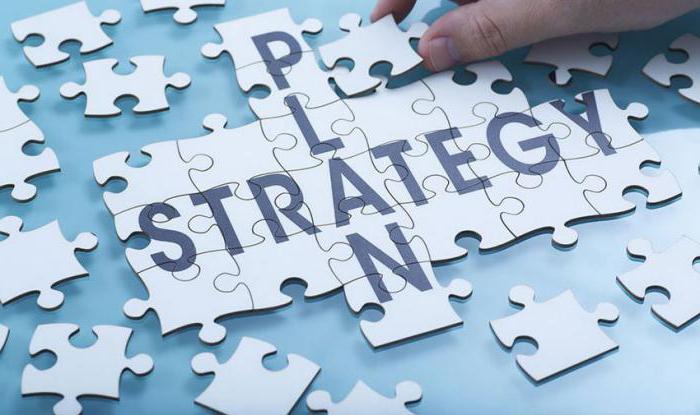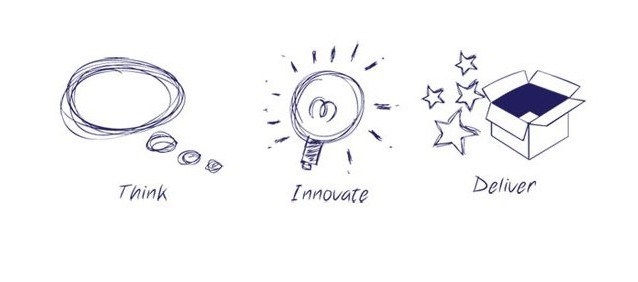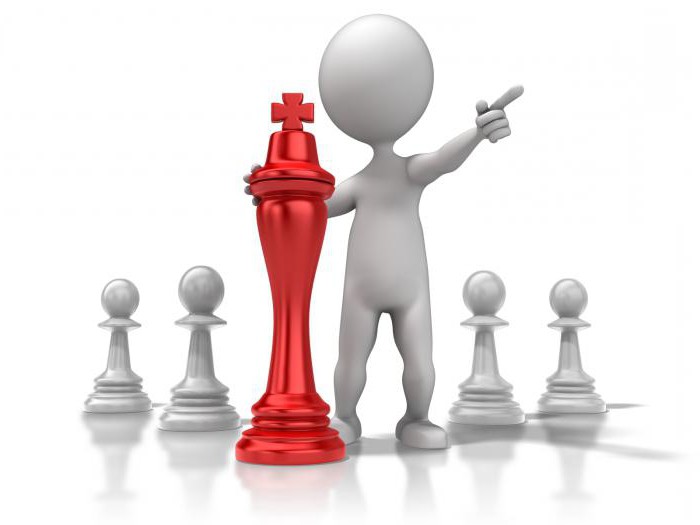Mistakes at the stage of choosing a company development strategy can nullify all further efforts. Especially now, when the level of competition in almost all sectors is growing inexorably. This is why strategic consulting exists. This is one of the most sought-after services in the management consulting market. Let's talk about why it is needed and why entrepreneurs are willing to pay a lot of money to talk with experienced people about their business.

Definition
Strategic consulting is a comprehensive work, the task of which is to determine the directions and prospects for the further development of the company based on an analysis of the current market situation and potential capabilities of the enterprise itself. During the sessions, the consultant helps the entrepreneur to find out how fully and correctly organized company management in terms of its long-term plans. The objective of this service is to turn an abstract idea into a successful and effective business development strategy.

When is it necessary
The first and most obvious answer is at the stage of creating a company. But in practice, owners of an existing business often turn to consulting agencies. This is necessary if:
- the market situation has changed dramatically, and the company has faced fundamentally new competitive challenges;
- the company wants to attract investors, and it is necessary to provide them with a clear and distinct plan;
- business is expanding, it becomes more difficult to convey strategic priorities to a large number of people;
- the business owner sees several alternative development paths, each of which has its pros and cons.
The consultant's task is to help the entrepreneur in finalizing the strategic management system. This takes into account both environmental factors and the internal organization of activities.

Targets and goals
From the point of view of the business owner, competent strategic planning is necessary in order to minimize possible risks, to ensure maximum profit and competitiveness of the enterprise. A business consultant must agree on the goals and wishes of the owner of the company with real opportunities, resources and the market situation.
Key tasks of strategic consulting are:
- definition and formulation of long-term goals of the company;
- development of a unified corporate strategy and setting specific tasks for individual units;
- Improving communication between different departments and services of the organization to achieve the desired results.
What happens in strategic sessions? It is a mistake to believe that the consultant should come and say “do so-and-so”, give specific instructions and, like the hero of the movie, will disappear into the fog. His job is to ask the right questions and talk about the experience of leading companies, help the entrepreneur to make the most important decisions.
Strategic consulting services are comprehensive and include:
- Formulation and specification of business goals.
- Analysis of problem areas that impede their achievement.
- Making a plan to solve current problems.
- External and internal analysis.
- The development of an enterprise development strategy for a certain period (usually 3-5 years) with details of various levels.
- Creating a value system and company mission.
- Improving the organizational structure and interaction between departments.
- Formation of a well-coordinated team of senior and middle managers.
- Analysis and optimization of basic business processes.
The company in this case is considered as a single organism, all of whose elements are interconnected. It is a systematic approach that allows the best coordination of goals and real actions.

Kinds
In modern management consulting, there are two approaches - project and process. What is the difference?
In the first case, the business consultant offers the client a certain turnkey solution based on their own experience and knowledge. This method does not require a large investment of time and is ideal for local one-time tasks.
However, if the organization has deep systemic problems, protracted crisis phenomena, the option “do this and this” is not suitable. It uses a process approach where independent experts help company employees develop their own way to resolve current problems.
In addition, there are different areas of counseling, depending on the size of the enterprise and the specifics of its activities. So, regional strategic consulting is needed in order to develop a development plan in a certain territory, and innovative helps to introduce and create demand for completely new products and services.

Strategic Consulting Tools
Many are interested in how business consultants working in strategic planning work. The choice of methods and tools largely depends on the specific situation and goals that business owners set themselves. Among the most popular are:
- SWOT analysis. Comprehensive assessment of the strengths and weaknesses of the company, its potential opportunities and threats from the market. On the basis of this diagnosis, a set of solutions is developed to balance the work of the organization.
- "Brainstorm". Discussion of company problems and possible solutions in a team. The task of each participant is to voice as many options as possible, including the craziest ideas.
- Coaching. Private sessions, during which the consultant, using leading questions, helps the business owner clarify his own goals, desires, and priorities.
- Business games. One of the main methods of working with staff. Helps to unite the team, enhance creative thinking and learn the opinions of employees, to identify weaknesses in corporate culture.
It is important to remember that a good consultant should not do your work for you. His goal is to push you to find and make the best decision on your own.

Main steps
Let's talk about what constitutes strategic consulting. Companies, for the most part, use a situational approach ("Let's try like this ...", "What if done ..."). However, for maximum efficiency and long-term existence of the organization this is not enough - you need to have a clearly defined system of goals and objectives. This is what all consulting activities are aimed at.
1. Environmental analysis
Any company is constantly influenced by various external factors. They differ from each other both in appearance and in intensity of influence on the enterprise. These factors include:
- the state of global and financial markets;
- political situation in the state;
- market, its conjuncture and dynamics;
- legislative and fiscal policy;
- Exchange Rates;
- competitive environment;
- the influence of suppliers, etc.
An organization cannot directly influence these factors. However, for successful functioning it is important to develop a clear mechanism of action when certain events occur ("If something happens ... we will ...").

2. Analysis of the internal environment
Let's move on to the next component of strategic management. Consulting always begins with a detailed study of the organization and resources of the enterprise.In this case, all factors affecting the work of the company are analyzed.
Staff
It can be said without exaggeration that this is a key resource of any enterprise. The quality of products and services, the image of the company and, ultimately, its profit, directly depend on the qualifications and motivation of employees. Particular attention is paid to the study of the motivation system - a set of tangible and intangible incentives that will contribute to the desire of employees to achieve better results.
Control system
Under the management system in management is meant a complex of organizational and software tools, documentation and communication methods that are used to control processes. Consulting specialists analyze:
- data sources (reports of various departments);
- a subsystem for collecting and processing information (special departments, the work of which can be expressed in numerical form - financial services, logistics, accounting, marketing, etc.);
- a subsystem for the development of managerial decisions (regulations, orders, decisions for setting goals and objectives);
- communications complex;
- organization staff.
Production
It is here that key business processes are concentrated - the reception, storage and accounting of raw materials, production planning, the distribution of work between employees, repair work, product shipment, and much more. Production strategic consulting is an analysis of how the production process is organized and how ready the company is to achieve its goals.
Finance
Another point that a business consultant should study is the level of security of the company with cash. The assessment of the quality of financial planning by cost items and periods, the possibility of attracting investors, the rationality of the distribution of funds between departments.
Marketing
At strategic sessions, much attention is paid to the analysis of marketing activities. It includes several main areas, including advertising, branding, innovation policy, pricing, assortment planning, PR, sales. The ultimate goal is to determine what tools and how the company should use in order to achieve maximum market and sales coverage.
Organizational culture
Standards of behavior, attitudes and values adopted by the organization can significantly affect its success. The coherence of the work of employees (if they share these ideas) and the image of the company in the eyes of potential customers depend precisely on this "code".

3. Definition of mission and goal setting
The mission is, in other words, the mission of the company, for what it exists from the point of view of business owners, their partners and the public. Why is she important? Many entrepreneurs are convinced that the only goal of their business is to make money. But a project focused solely on making a profit does not last long. And only those companies that have a certain highest goal, philosophy and principles achieve true success.
It is the mission that determines the choice of direction for the further development of the company, indicates where it is best to direct the efforts and resources of the organization.
Goals, in turn, must be consistent with this philosophy. In fact, they are clear, measurable values that need to be achieved in the process.
Typically, the long-term planning horizon is 3 to 5 years. This is primarily due to the variability of the business environment and consumer tastes. Making accurate forecasts for a longer period is almost impossible.
What does strategic consulting give at this stage? This is an opportunity to formulate concrete, and most importantly achievable goals in several directions at once:
- economic efficiency of the business (in other words, its profitability and growth rate of the company);
- well-being and satisfaction of personal needs of employees;
- Social responsibility;
- work with clients.
The consultant should help the entrepreneur to distribute the goals in accordance with the principle of hierarchy. What does it mean? The tasks of the departments should be consistent with the general goals of the company and contribute to their achievement, just as the responsibilities of individual employees should logically follow from the tasks of the entire department. Time division is also used: plans for a year, quarter, month, week.
It is important that each goal has a quantitative analogue - that is, real indicators that can be achieved and are presented in numbers (pieces, rubles, percent). For example:
- achieve a brand recognition level of 9% at the federal level;
- achieve an annual turnover of 1 million rubles by the end of 2017;
- achieve a productivity of 700,000 units per month, etc.
Moreover, all goals should be formed taking into account the real resources available to the company.

4. Strategic planning
Only after a preliminary analysis and formation of the company's mission can we proceed directly to the planning of activities. In simple words, a strategy is a definition of exactly how the organization is going to achieve its goals.
The main work at this stage:
- development of an optimization program for products manufactured by the enterprise;
- choice of marketing strategy;
- budget planning;
- organization of control over the implementation of the plan.
The choice of enterprise development strategy depends on many factors. Of key importance are the company's position among competitors, market development trends in a specific geographical area, as well as the company's development prospects (taking into account the possibility of introducing new technologies).
An example of this is the following strategy options:
- Price expansion in key geographical regions.
- Development and market launch of innovative products / services.
- Buying competitor companies.
Strategic sessions will necessarily discuss the possibilities of adjusting long-term and operational plans depending on environmental conditions. Modern business should not be enclosed in a tight framework - in order to survive in a competitive environment, flexibility is necessary.
 5. Implementation of the strategic plan
5. Implementation of the strategic plan
For some firms, this phase is becoming critical. Successful achievement of the goals depends on how correctly they were set and on how clearly the staff of the enterprise follows the plan. To achieve the desired results, work is carried out in several areas:
- development of a strategic planning analysis system;
- the formation of a hierarchy and an office (first of all, in order to avoid the situation when four captains on a ship of five sailors);
- planning a system of employee motivation (tangible and intangible);
- creation of a system for monitoring the distribution of tasks and their implementation;
- ensuring continuous supply of necessary resources.
A strategic consultant should help business owners identify a single corporate center, as well as determine the roles of all structural divisions and the algorithm for their interaction - without this, effective work is impossible.

6. Control
Finally, the last step is to evaluate the achievement of your goals. Controls of the type "task-result" are hopelessly outdated - in this case, the leader can only state the facts and does not affect the result.
That is why modern strategic consulting includes support in creating an intermediate control system. The consultant, together with the business owner, divides the workflow into specific blocks and designates control points. This approach allows you to control the work process, verify intermediate results with planned values, quickly solve problems and, ultimately, achieve your main strategic goals faster.
Also at this stage, the identification and correction of arising failures is carried out, trainings and other training events for employees are organized.